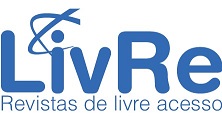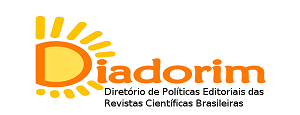ESTIMATIVA DA RECARGA AQUÍFERA EM SISTEMAS CÁRSTICOS
Avaliação do método APLIS para a bacia do rio Sobrado, estado do Tocantins
DOI:
https://doi.org/10.70860/rtg.v14i33.19612Palabras clave:
APLIS, Balanço hídrico, Gestão de recursos hídricos, Recarga aquífera, Sistemas cársticosResumen
Este estudo avaliou a eficácia do método APLIS e de uma versão adaptada às condições regionais para estimar a taxa de recarga média anual da bacia do rio Sobrado, localizada no sudeste do estado do Tocantins, a qual está sobreposta ao Sistema Aquífero Bambuí. O método é uma abordagem indireta que utiliza variáveis como altitude, declividade, litologia, solo e áreas de infiltração preferencial, que permitem quantificar e mapear espacialmente as taxas médias anuais de recarga. Os resultados foram comparados com as taxas de recarga obtidas em estudos anteriores calculadas pela média do balanço hídrico de depressões cársticas, pelo método da separação de fluxo de base e pelo método direto do balanço de massa de cloreto em poços profundos na região. Os achados indicaram que o APLIS original apresentou uma taxa de recarga média anual de 31,44%, e a versão adaptada, 29,71%, valores semelhantes aos métodos comparados. Apesar de o APLIS ter demonstrado resultados consistentes, principalmente para espacialização das taxas de recarga, suas limitações, como a subjetividade na atribuição de pontuações, ressaltam a necessidade de abordagens complementares. A pesquisa enfatiza a importância da integração de métodos para uma compreensão mais abrangente da dinâmica de recarga na área de estudo.
Citas
ABDULLAH, A.; AKHIR, J. M.; ABDULLAH, I. Automatic mapping of lineaments using shaded relief images derived from digital elevation model (DEMs) in the Maran-Sungi Lembing area, Malaysia. Electronic Journal of Geotechnical Engineering, v. 15, n. 6, p. 949-958, 2010. Disponível em: https://www.researchgate.net/publication/267550694_Automatic_Mapping_of_Lineaments_Using_Shaded_Relief_Images_Derived_from_Digital_Elevation_Model_DEMs_in_the_Maran_-_Sungi_Lembing_Area_Malaysia. Acesso em: 23 jan. 2025.
ALEM, H.; SOUDEJANI, A. E.; FARMANIEH, S. N. Groundwater recharge assessment in the karst aquifers of North Khorasan, Iran using APLIS method. Acta Carsologica, v. 46, n. 2–3, p. 283–294, 2017. DOI: https://doi.org/10.3986/ac.v46i2-3.4740. DOI: https://doi.org/10.3986/ac.v46i2-3.4740
ANA. Hidrogeologia dos ambientes cársticos da bacia do Rio São Francisco para a gestão de recursos hídricos: relatório final. Brasília: ANA, 2018. Disponível em: https://metadados.snirh.gov.br/geonetwork/srv/api/records/11828587-8176-4eb9-a367-0e4cdf9b2e3d/attachments/Volume_II_-_Hidrogeologia.pdf. Acesso em: 22 jan. 2025.
ANDREO, B.; DURÁN, J.; VÍAS, J.; LÓPEZ-GETA, J. A.; CARRASCO, F.; JIMÉNEZ, P. Métodos para la estimación de la recarga en acuíferos carbonáticos: Aplicación en acuíferos de la Cordillera Bética (Sur de España). Investigaciones En Sistemas Kársticos Españoles, v. 12, p. 185-203, 2004.
ANDREO, B.; VÍAS, J.; DURÁN, J. J.; JIMÉNEZ, J.; LÓPEZ-GETA, J. A.; CARRASCO, F. Methodology for groundwater recharge assessment in carbonate aquifers: application to pilot sites in southern Spain. Hydrogeology Journal, v. 16, p. 911–925, 2008. DOI: https://doi.org/10.1007/s10040-008-0274-5. DOI: https://doi.org/10.1007/s10040-008-0274-5
ARDANA, P. D. H.; SUMARDA, G.; SUDIKA, I. G. M.; ASTARIANI, N. K. Comparison of groundwater recharge quantification method. Solid State Technology, v. 63, n. 3, p. 5088, 2020.
AYADI, Y.; MOKADEM, N.; KHELIFI, F.; KHALIL, R.; DHAWADI, L.; HAMED, Y. Groundwater potential recharge assessment in Southern Mediterranean basin using GIS and remote sensing tools: case of Khalled-Teboursouk basin, karst aquifer. Applied Geomatics, v. 16, p. 677-693, 2024. DOI: https://doi.org/10.1007/s12518-024-00573-8. DOI: https://doi.org/10.1007/s12518-024-00573-8
BEYENE, T. D.; ZIMALE, F. A.; GEBREKRISTOS, S. T. A review on sources of uncertainties for groundwater recharge estimates: insight into data scarce tropical, arid, and semiarid regions. Hydrology Research, v. 55, n. 1, p. 51-66, 2024. DOI: https://doi.org/10.2166/nh.2023.221. DOI: https://doi.org/10.2166/nh.2023.221
BRAUN, A. DEM generation with Sentinel-1: Workflow and challenges. European Space Agency, p. 29, 2021a. Disponível em: https://step.esa.int/docs/tutorials/S1TBX%20DEM%20generation%20with%20Sentinel-1%20IW%20Tutorial.pdf. Acesso em: 23 jan. 2025.
BRAUN, A. Retrieval of digital elevation models from Sentinel-1 radar data – open applications, techniques, and limitations. Open Geosciences, v. 13, n. 1, p. 532-569, 2021b. DOI: https://doi.org/10.1515/geo-2020-0246. DOI: https://doi.org/10.1515/geo-2020-0246
CARVALHO, J. V.; NASCIMENTO, S. A. de M.; GONÇALVES, M. V. P.; CRUZ, M. J. M. Hidrogeoquímica das águas subterrâneas dos domínios Santa Maria da Vitória/Cocos, (NE Bahia, Brasil). Geobrasiliensis, 2022. https://doi.org/10.21715/GB2358-2812.202236006. DOI: https://doi.org/10.21715/GB2358-2812.202236006
CECAV. Metadados dos dados geográficos de localização das cavernas cadastradas no sistema CANIE. 2022. Disponível em: https://www.gov.br/icmbio/pt-br/assuntos/centros-de-pesquisa/cavernas/cadastro-nacional-de-informacoes-espeleologicas/metadados-canie-19dez2022.pdf. Acesso em: 22 jan. 2025.
CHIOSSI, Nivaldo José. Geologia de Engenharia. 3. ed. São Paulo: Oficina de Textos, 2013.
CORRÊA, N. F.; ALBUQUERQUE FILHO, J. L. Síntese acerca das taxas de recarga do Sistema Aquífero Guarani em sua área de afloramento. In: Suplemento dos Anais do Congresso brasileiro de águas subterrâneas, São Paulo: Associação Brasileira de Águas Subterrâneas, 2021. p. 532.
ERRAHMOUNI, A.; STITOU EL MESSARI, J. E.; TAHER, M. Estimation of groundwater recharge using APLIS method – Case study of Bokoya Massif (Central Rif, Morocco). Ecological Engineering & Environmental Technology, v. 23, n. 4, p. 57-66, 2022. DOI: https://doi.org/10.12912/27197050/149956. DOI: https://doi.org/10.12912/27197050/149956
FAUVEL, M. et al. Fast forward feature selection of hyperspectral images for classification with gaussian mixture models. IEEE journal of selected topics in applied earth observations and remote sensing, v. 8, n. 6, p. 2824-2831, jun. 2015. DOI: https://doi.org/10.1109/JSTARS.2015.2441771
FREEZE, R. A.; CHERRY, J. A. Água Subterrânea. Tradução de Rafael Terada e Tiago Antonio Morais. 2. ed. São Paulo: Instituto Água Sustentável, 2017.
GASSER, R. S. Avaliação da vulnerabilidade intrínseca à contaminação do aquífero cárstico Salitre no município de Cafarnaum, Bahia. Águas Subterrâneas, v. 32, n. 1, p. 70-78, 2018. DOI: https://doi.org/10.14295/ras.v32i1.29090. DOI: https://doi.org/10.14295/ras.v32i1.29090
GONZÁLEZ, K. M; FLORES CARPIO, Y. G; CAMACHO, C. O.; TOULKERIDIS, T.; SZŰCS, P. Assessment of diffusive recharge at regional scale in karst systems, Amazon basin, Ecuador. Acta Carsologica, v. 53, n. 1, p. 1-20, 2024. DOI: https://doi.org/10.3986/ac.v53i1.13618. DOI: https://doi.org/10.3986/ac.v53i1.13618
IBGE. Pedologia 1:250.000. Instituto Brasileiro de Geografia e Estatística, 2021. Disponível em: https://www.ibge.gov.br/geociencias/informacoes-ambientais/pedologia/10871-pedologia.html?=&t=downloads. Acesso em: 29 nov. 2021.
IBGE. Pesquisa Agrícola Municipal (PAM). 2023. Disponível em: https://sidra.ibge.gov.br/pesquisa/pam/tabelas. Acesso em: 22 jan. 2025.
KIRCHHEIM, R.; FRANZINI, A.; MATTIUZI, C. Avaliação crítica das disponibilidades hídricas subterrâneas em planos de bacia do Estado de São Paulo. Águas Subterrâneas, v. 32, n. 1, p. 1-4, 2018. DOI: https://doi.org/10.14295/ras.v32i1.29466.
KIRN, L.; MUDARRA, M.; MARÍN, A. I.; ANDREO, B.; HARTMANN, A. Improved assessment of groundwater recharge in a Mediterranean karst region: Andalusia, Spain. In: RENARD, P.; BERTRAND, C. (ed.). EuroKarst 2016, Neuchâtel. Cham: Springer, 2017. p. 117–125. DOI: https://doi.org/10.1007/978-3-319-45465-8_13. DOI: https://doi.org/10.1007/978-3-319-45465-8_13
MARÍN, A. I. The application of GIS to evaluation of resources and vulnerability to contamination of carbonated aquifer: test site Alta Cadena (Málaga province). 2009. Tese (Doutorado) – Universidade de Málaga, Espanha, 2009.
MORAIS, F.; SOUSA, E. S.; BACELLAR, L. A. P.; CARDOSO, L. H. Integração de análise hidroquímica à geofísica aérea para entendimento da hidrodinâmica no entorno da Lagoa da Confusão, Tocantins, Brasil. Revista Geociências do Nordeste, v. 10, n. 1, p. 152–166, 2024. DOI: https://doi.org/10.21680/2447-3359.2024v10n1ID30701. DOI: https://doi.org/10.21680/2447-3359.2024v10n1ID30701
NANOU, E.-A.; PERDIKARIS, K.; TSEROLAS, P.; ZAGANA, E. Recharge assessment in Greek karst systems: methodological considerations and implications. Water, v. 16, n. 4, p. 568, 2024. DOI: https://doi.org/10.3390/w16040568. DOI: https://doi.org/10.3390/w16040568
NASCIMENTO, H. R.; MORAIS, F. Fragilidade ambiental emergente da bacia hidrográfica do Rio Sobrado, sudeste do Tocantins. Revista Tocantinense de Geografia, v. 12, n. 27, p. 141-160, maio 2023a. https://doi.org/10.20873/rtg.v12i27.15380. DOI: https://doi.org/10.20873/rtg.v12i27.15380
NASCIMENTO, H. R.; MORAIS, F. Diagnóstico geoecológico da paisagem cárstica da bacia do rio Sobrado, sudeste do Tocantins. Geofronter, Campo Grande, v. 9, p. 01-21, 2023b. DOI: https://doi.org/10.61389/geofronter.v9i1.7564
NUNES, J. G. S.; UAGODA, R. E. S. Solos em carste tropical, desenvolvimento pedogenético e comportamento hidrológico: uma revisão teórica. Revista Brasileira de Geografia Física, v. 13, n. 7, p. 3498-3517, 2020. Disponível em: https://doi.org/10.26848/rbgf.v13.07.p3498-3517. Acesso em: 10 jul. 2025. DOI: https://doi.org/10.26848/rbgf.v13.07.p3498-3517
PEREIRA, H.; MORAIS, F. Detecção e delimitação de depressões cársticas na bacia do rio Sobrado - TO, a partir de variados modelos digitais de elevação. Revista Geociências, v. 1, n. 1, p. 97-117, 2023. DOI: https://doi.org/10.5016/geociencias.v42i01.17398. DOI: https://doi.org/10.5016/geociencias.v42i01.17398
PEREIRA, H. L.; MORAIS, F. O papel das depressões cársticas na estimativa da taxa de recarga aquífera na bacia do rio Sobrado, estado do Tocantins. Revista Brasileira de Geografia Física, v. 18, n. 3, p. 2225–2242, 2025. DOI: https://doi.org/10.26848/rbgf.v18.3.p2225-2243. DOI: https://doi.org/10.26848/rbgf.v18.3.p2225-2243
PLANET. Norway's International Climate and Forests Initiative Satellite Data Program. Planet Labs PBC, 2023. Disponivel em: <https://www.planet.com/nicfi/>. Acesso em: 1 ago. 2023.
QGIS. Geographic Information System. Open Source Geospatial Foundation Project. QGIS Association, 2022. Disponivel em: <https://download.qgis.org/downloads/>. Acesso em: 29 jul. 2025.
RIBEIRO, P. S. E.; FRASCA, A. A. S.; CARNEIRO, J. S. M.; HATTINGH, K.; REZENDE, E. S.; MARTINS, F. R. Mapa geológico e de recursos minerais do Estado do Tocantins. 2022. Disponível em: https://rigeo.sgb.gov.br/handle/doc/22530. Acesso em: 23 jan. 2025.
SANTOS, H. G. (In memoriam); ZARONI, M. J.; ALMEIDA, E. P. C. Neossolos Litólicos. Solos Tropicais. 2021. Disponível em: https://www.embrapa.br/agencia-de-informacao-tecnologica/tematicas/solos-tropicais/sibcs/chave-do-sibcs/neossolos/neossolos-litolicos. Acesso em: 23 jan. 2025.
SYAFARINI, H.; HENDRAYANA, H.; WINARDI, S. Application of the APLIS Method for Groundwater Vulnerability Assessment in Rote Island Karst Areas. IOP Conference Series: Earth and Environmental Science, v. 926, 2021. DOI: https://doi.org/10.1088/1755-1315/926/1/012071. DOI: https://doi.org/10.1088/1755-1315/926/1/012071
TEIXEIRA, G. M. Avaliação e estimativa de recarga dos aquíferos da região da APA Carste de Lagoa Santa, MG. 130 f. Dissertação (Mestrado em Geologia Econômica Aplicada) – Instituto de Geociências, Universidade Federal de Minas Gerais, Belo Horizonte, 2023.
TEIXEIRA, G.; DE PAULA, R. S.; VELASQUEZ, L. N. M.; ANDRADE, I. B.; MACIEL PACHECO NETO, W. Estimated aquifer recharge through the APLIS method adapted to the characteristics of fissure and karst aquifers of the Lagoa Santa Karst EPA region, MG. SSRN, 2024. DOI: http://dx.doi.org/10.2139/ssrn.4858297. DOI: https://doi.org/10.2139/ssrn.4858297
TOCANTINS. Relatório Final do Contrato 156/99. Secretaria de Recursos Hídricos e Meio Ambiente. Palmas, p. 291. 2010.
TOCANTINS. Delimitação e caracterização cartográfica das áreas vulneráveis a escassez hídrica na região sudeste do estado do Tocantins. Projeto de Desenvolvimento Regional Integrado e Sustentável – PDRIS, Secretaria da Fazenda e Planejamento, Palmas, 2019a. Disponível em: https://www.to.gov.br/seplan/sudeste-do-estado-do-tocantins/6vw0ov1iqwlb. Acesso em: 22 jan. 2025.
TOCANTINS. GeoPortal da Secretaria do Planejamento e Orçamento: plataforma digital para organização e compartilhamento de informações geográficas e dados espaciais produzidos pela Instituição. 2019b. Disponível em: https://geoportal.to.gov.br/gvsigonline/core/load_public_project/basetematicasudestetocantins/. Acesso em: 22 jan. 2025.
VASCONCELOS, V. V.; MARTINS JUNIOR, P. P.; HADAD, R. M. Metodologia para diagnóstico rápido de áreas de recarga de aquíferos. Revista do Instituto de Geociências - USP, v. 13, n. 2, p. 6-6, jun. 2013. DOI: https://doi.org/10.5327/Z1519-874X2013000200005. DOI: https://doi.org/10.5327/Z1519-874X2013000200005
Descargas
Publicado
Cómo citar
Número
Sección
Licencia
Derechos de autor 2025 Revista Tocantinense de Geografía

Esta obra está bajo una licencia internacional Creative Commons Atribución-NoComercial-SinDerivadas 4.0.
Revista Tocantinense de Geografia no remunera a ningún autor por la publicación de sus textos. Los contenidos de los textos publicados en esta revista son responsabilidad de los autores.








.png)












